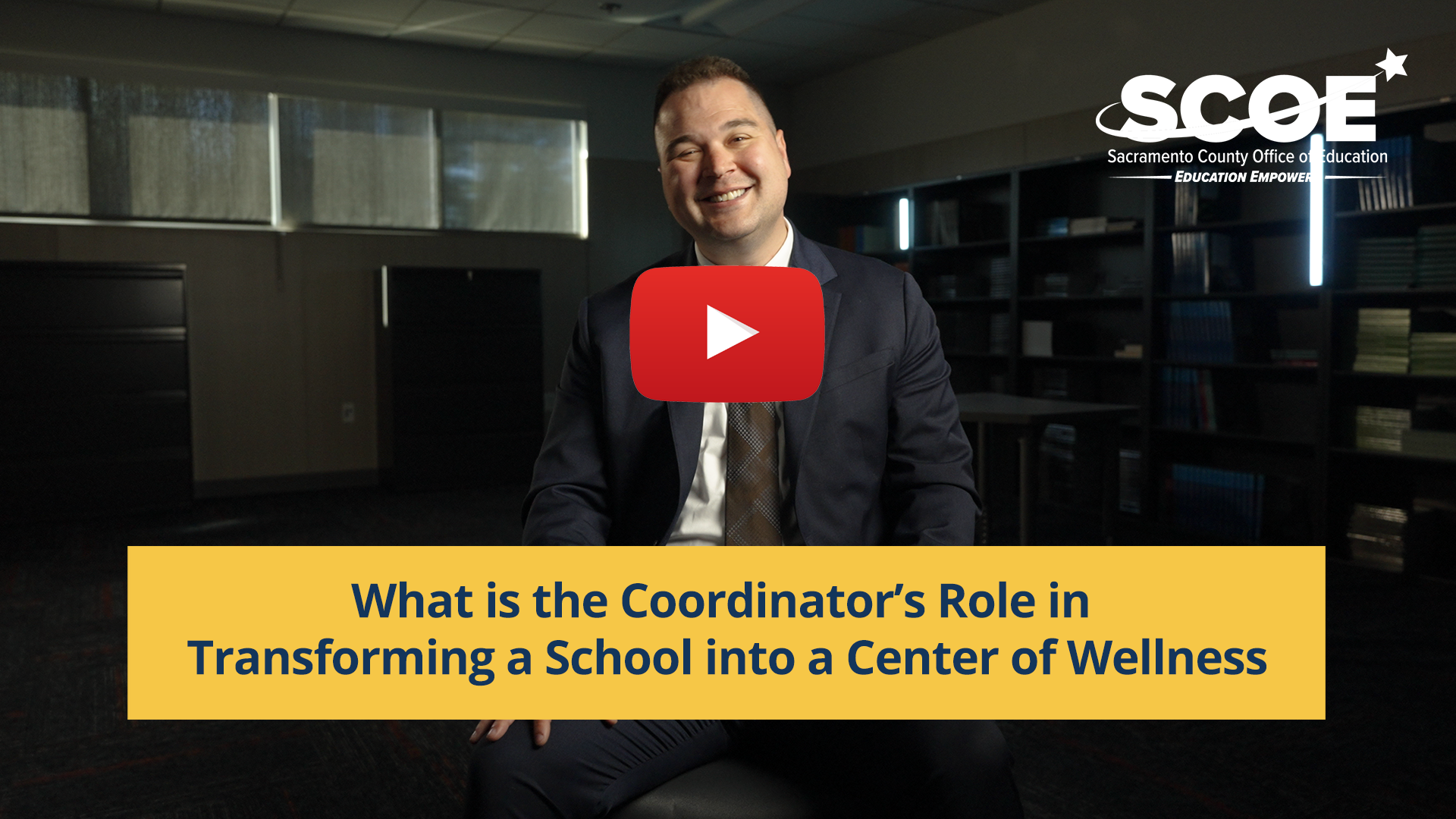
Coordinator Role
Phase 0.5: Orientation
Training Resource Home > Coordinator > Phase 0.5: Orientation
Phase Overview
This training phase centers around Coordinators gaining a comprehensive and nuanced understanding of School-based Mental Health and Wellness (SBMHW), including its core themes and components. Emphasis will be placed on the need for applying a diversity, equity, inclusion, and belonging (DEIB) lens to the work. Coordinators will also deepen their understanding of their specific roles and responsibilities including serving schools as clients.
Phase Goals/Objections
Solidify in-depth understanding of SBMHW including the themes and core components of the model
Understand the importance of approaching work with a diversity, equity, inclusion, and belonging (DEIB) lens
Understand assigned roles and the responsibilities
Develop understanding of protection legislation (HIPAA & FERPA) and areas where legislation may conflict
SCOE New Employee Orientation
Attend the SCOE New Employee Orientation to receive essential information about employment with the Sacramento County Board of Education. This orientation provides an overview of organizational policies, procedures, and expectations.
-
• Attend SCOE New Employee Orientation
SCOE School-based Mental Health & Wellness Employee Orientation
Attend the comprehensive SCOE School-based Mental Health & Wellness Employee Orientation to acquire critical information about the program. This detailed orientation will provide you with an essential foundational knowledge base central to your role. Gaining this understanding is crucial to effectively participating in and contributing to the functional aspects of your role.
-
• Attend School-based Mental Health & Wellness (SBMHW) Orientation
• Complete Post-SBMHW Orientation Assessment to assess personal orientation information retention
Post-SBMHW Orientation Assessment
During my onboarding and orientation, I have developed understanding of the following topics in relation to SBMHW:
General Program Knowledge
Coordinators should have gathered the vision, mission, and values of the School-based Mental Health & Wellness (SBMHW) program, emphasizing the significance of adult protective relationships and their role in fostering such relationships.
-
☐ I understand the vision, mission and values of SBMHW
☐ I understand the importance of adult protective relationships and my role in creating such relationships
☐ I understand the need to increase access to care
☐ I understand the importance of mental health and wellness in the school setting
☐ I understand the intersection between the healthcare system and the school setting
☐ I have an understanding of the requirements of Health Insurance Portability Accountability Act (HIPAA) and Family Educational Rights and Privacy Act (FERPA), and how they relate to my role
☐ I know the (4) themes of SBMHW
☐ I know the (4) Core Components of SBMHW
☐ I understand and have knowledge of diversity, equity, inclusion, and belonging framework
☐ I have a basic understanding of the Multi-Tiered Systems of Support (MTSS), Positive Behavioral Interventions and Support (PBIS) and how my role relates
☐ I understand the process for the Random Moment in Time survey (RMTS), sent by the California SMAA program
☐ I understand Social and Emotional Learning (SEL)
☐ I understand the importance of introspection and participation in Transformative Social Emotional Learning (TSEL) trainings, to help cultivate spaces that promote belonging
☐ I understand the importance of my attendance and participation in regional team meetings, SBMHW team meetings, professional development and training; supervision/consultation, and events within my school community
Program Support
Coordinators should understand how their strengths and skills will contribute to serving assigned school sites and team members, including their supervisees. This awareness helps them provide targeted support, fostering a productive environment where team members can thrive.
-
☐ I can identify how my strengths and skill set may contribute to the development and support of schools as Centers of Wellness
☐ I understand paper and electronic registration systems (Sign Now)
☐ I am confident and can competently review and explain the registration forms to clients/families
☐ I understand documentation practices, requirements, and expectations
☐ I understand how to access the Electronic Diagnostic and Statistical Manual (DSM) for guidance on diagnosing and treatment
☐ I understand Diagnostic F Codes (DSM 5) and CPT Codes for billing
☐ I understand how to access the Language Line for translation services
☐ I understand protocols outlining when district translation services can be used
☐ I understand how to navigate Teams
☐ I understand how to navigate Epic
☐ I understand how to obtain office supplies
☐ I understand how to support clinicians in completing documentation for billing encounters and workshops
☐ I understand how to access and navigate SBMHW contact sheet
☐ I understand SBMHW program crisis protocols, crisis-related processes including response, reporting and documentation expectations
☐ I understand the school district and school site crisis protocols including but not limited to Suicidal Ideation (SI), Homicidal Ideation (HI), and emergencies and disaster preparedness
☐ I am confident and competent in supporting during crisis at my sites
☐ I understand how and when to complete crisis incident reports
Personal Care
Coordinators should gather tools on how to care for their own mental health and wellness to sustain their effectiveness in their roles. They should also gain the ability to articulate their personal motivation ("my why") for engaging in this work, enhancing their sense of purpose and commitment.
-
☐ I understand how to care for my own mental health and wellness
☐ I can communicate “my why” for engaging in this work
☐ I understand professional boundaries and appropriate interaction
Attestation
Coordinators should understand how to leverage their strengths to effectively serve assigned districts, confidently review and explain registration forms, and gain knowledge about documentation practices, access translation services through the Language Line and district protocols.
-
☐ I understand that topics covered in orientation are important to my success in my role. Any areas I am not confident in yet, I should continue to work towards strengthening with my supervisor and team members




